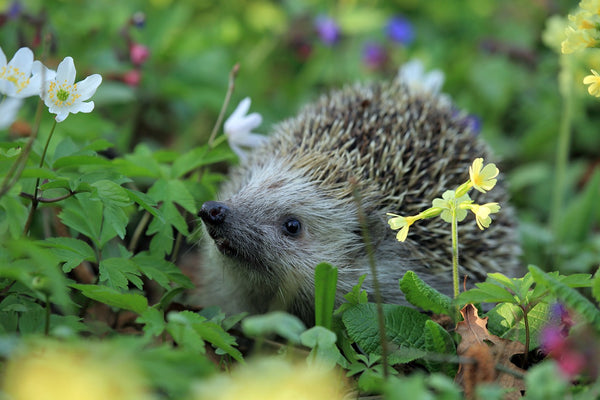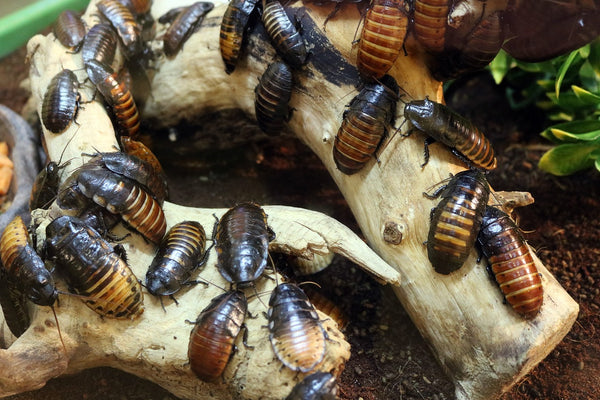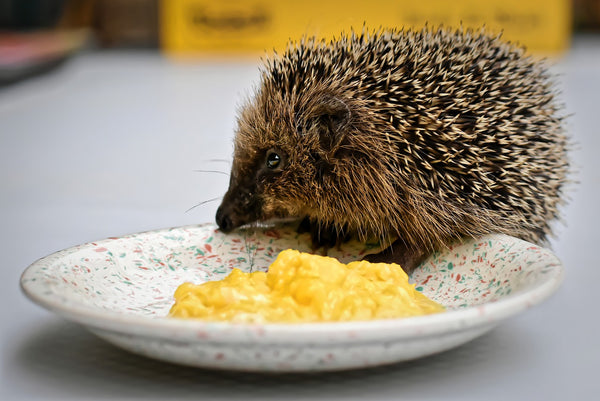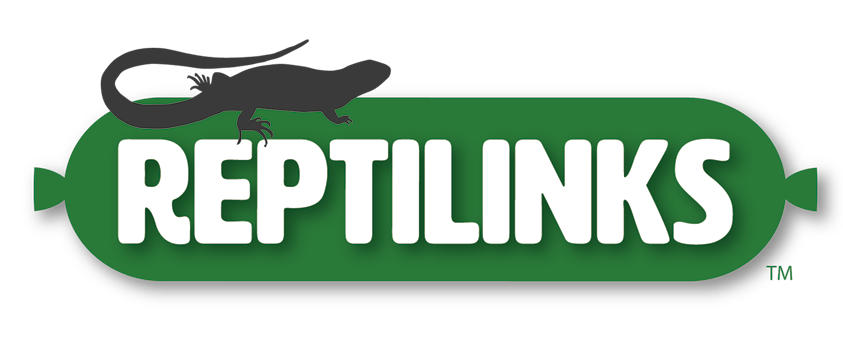By Jonell Stetz, Morning Star Hedgehogs

Before going into further detail, there’s something to keep in mind. Currently, there aren’t any laboratories doing research on the proper hedgehog diet and there are A TON of differing opinions on the subject.
What we strive for at Morning Star Hedgehogs is feeding our animals a diet that is as close to nature as we can. So without further ado, here’s what we’ve come up with:
The Best African Pygmy Hedgehog Diet
The single best food for an African Pygmy Hedgehog diet has not yet been created. Instead, it’s best to offer a larger variety for your hedgie to choose from; that way, you may just hit on the right ingredients for a good and healthy diet.
Hedgehogs are nocturnal animals that feed upon all the “creepy crawlies.” Being nose-to-the-ground creatures, they typically root and forage for anything in their path.
Look around your backyard at midnight. Not too much is out there: insects, frogs, slithering creepies like slugs and worms. Occasionally, even snakes will make their dinner menu!
As I previously mentioned, our challenge is to provide a hedgehog diet that’s as close to nature as possible. This is so that we can give them all the nutrients they need for a healthy, happy, and long life! That’s why we are dedicated to taking a much more natural approach to feeding our herds and babies.
Whole Prey Products
What do we mean by whole prey feeding?
Simply put, that’s when you feed the entire animal skin, feathers/fur, organs, glands, and blood to your pet. There are many benefits to this feeding method from a hedgehog nutrition perspective.
For example, whole prey animal provides fiber, which supports gut health, as well as a much higher concentration of vitamins and minerals. Additionally, whole prey has been proven to provide physical enrichment not found in other feeding methods.
But where do you get whole prey? Many of us that live in cities find it difficult to obtain whole prey, except maybe for Pinky Mice. Fortunately, there is a compromise; you can also use raw diet feed to supplement one that’s more processed.
This feeding method is traditionally used in the reptile community, but it’s surprisingly adaptable for an African pygmy hedgehog diet as well. I recommend links made from whole prey animals, amphibians, and/or lizards that are made into a sausage form for ease of feeding.
Not a single one of my hedgehogs turns these types of feed away. Take my word for it: when you feed a more natural diet to your animal, It will become more active, more robust, and more vibrant!
What Insects Can Hedgehogs Eat?

Did you know that in the wild, over 80% percent of a hedgehog’s stomach typically contains invertebrates? It’s one of the largest portions of a balanced hedgehog diet and is indispensable for their nutrition.
Because of this, I urge hedgehog owners to feed their pets live invertebrates, such as:
- Dubai Roaches
- Green Hornworms
- Crickets
- Snails
- Black Soldier Fly Larvae (Also known as Calci-Worms or Phoenix Worms)
- Mealworms in moderation (or that have pupated, since beetles are better than the worm)
- Superworms
- Waxworms
- Silkworms
- Earthworms
This next point is extremely important: No outdoor insects should be fed to your hedgehog; they must be farm-raised! Wild-caught insects can carry bacteria that could harm your domestic hedgie’s delicate immune system. Additionally, you could end up feeding your pet the wrong type of bug that could even be toxic to it.
Here’s another tip: if you can’t stomach feeding your hedgehogs live feed, gut load the bugs for 24-48 hours and then freeze them. Thawed whole prey may take the “hunting” fun out of it, but it will give your animal the same nutritional benefits they need.
Miscellaneous Hedgehog Diet List

Here are some other ideas for nutritious meals to feed your pet hedgehog:
- Other types of meats: I recommend organ meats like hearts and livers (duck, turkey, and chicken) that are par-cooked and either chopped or pureed. I’ll occasionally offer cooked tripe to my hedgies; some like it, some don’t. Venison, chicken, duck, turkey, lamb, beef, and pork can work as well.
- Eggs: Quail, Duck, Chicken… I par scramble them using olive oil or I hard boil. Then I repurpose the shells and process them to be used as a calcium supplement once a week, sprinkled or mixed in with their food.
- Canned Cat/Dog Foods: These are more of a treat than used as a complete meal. The exception of Evangers dog food that has a sole ingredient like chicken, lamb, duck, or rabbit.
- Fruits and Veggies: Typically, I don’t offer fruits or vegetables and would never serve them raw. Ultimately, I only suggest pumpkin, butternut squash, sweet potatoes, baby applesauce (NO seasoning), or bananas.
- Kibble: We do offer a small amount of kibble to our hedgehogs which we mix from 5 to 6 different brands to offer a larger variety. This helps to round out its overall nutritional value by providing additional vitamins and minerals.
Remember: this is only a guide to providing a more natural based diet for your hedgehog. None of this information can or should replace professional veterinary care. Always talk to a vet before making any substantial changes to your pet’s diet.
Bon Appetit!!

